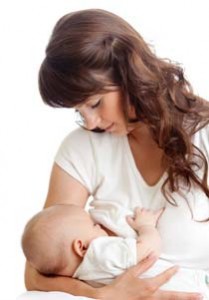 Breastfeeding can be a wonderful bonding experience for mother and baby. It can also pose a few obstacles including mastitis. Mastitis is an infection caused by a clogged duct in the nipple of a nursing mother. Here is some information about mastitis and some helpful tips on how to prevent it.
Breastfeeding can be a wonderful bonding experience for mother and baby. It can also pose a few obstacles including mastitis. Mastitis is an infection caused by a clogged duct in the nipple of a nursing mother. Here is some information about mastitis and some helpful tips on how to prevent it.
Mastitis won’t hurt your baby but it can reduce the milk supply in the affected breast.It can happen to occur when bacteria enters the breast through a cracked or sore nipple. It can start as a painful area in one breast and may be red or warm to the touch or both and can be accompanied by fever, chills, and body aches.
Try to avoid mastitis by following a few of these helpful tips:
- Get plenty of rest and eat a healthy, balanced diet while you are nursing.
- Try your best to avoid letting your breasts become overly full or engorged.
- If your breasts are not empty after nursing or pumping, or you have a plugged duct, use warm compresses and massage to get the milk out.
- Avoid under-wire bras and bras that are too small.
If you are beginning to feel the symptoms of mastitis, continue to breast feed as you normally would but make sure to see your doctor. Applying warm compresses for several minutes before each feeding will help alleviate any pain. Antibiotics may be prescribed, but pain should subside within one to two days after taking you prescriptions.
If you have questions or concerns about breastfeeding, Flushing Hospital Medical Center offers a Breastfeeding Support Group where you can get advice and tips from a certified lactation specialist and meet and share experiences with other mothers that are breastfeeding.
For additional information, please call 718-670-5201.
All content of this newsletter is intended for general information purposes only and is not intended or implied to be a substitute for professional medical advice, diagnosis or treatment. Please consult a medical professional before adopting any of the suggestions on this page. You must never disregard professional medical advice or delay seeking medical treatment based upon any content of this newsletter. PROMPTLY CONSULT YOUR PHYSICIAN OR CALL 911 IF YOU BELIEVE YOU HAVE A MEDICAL EMERGENCY.
